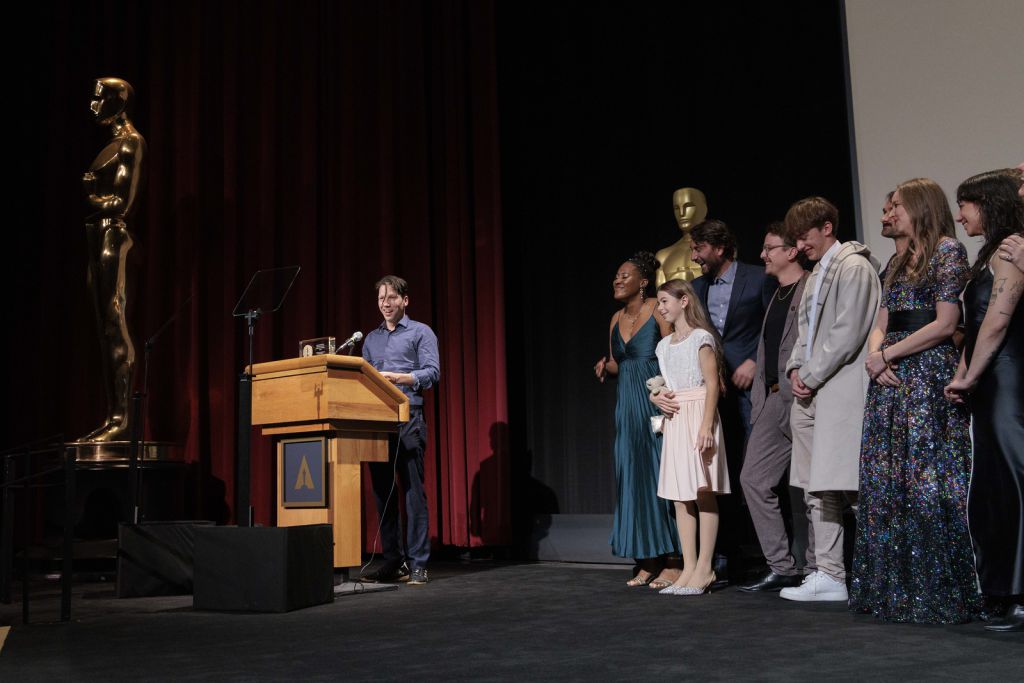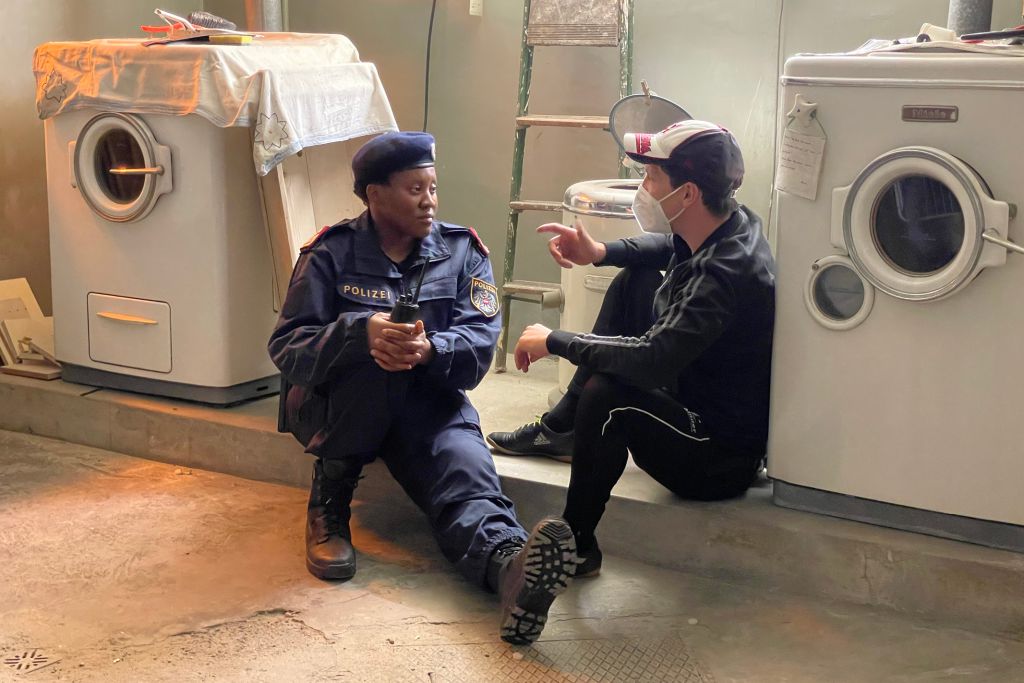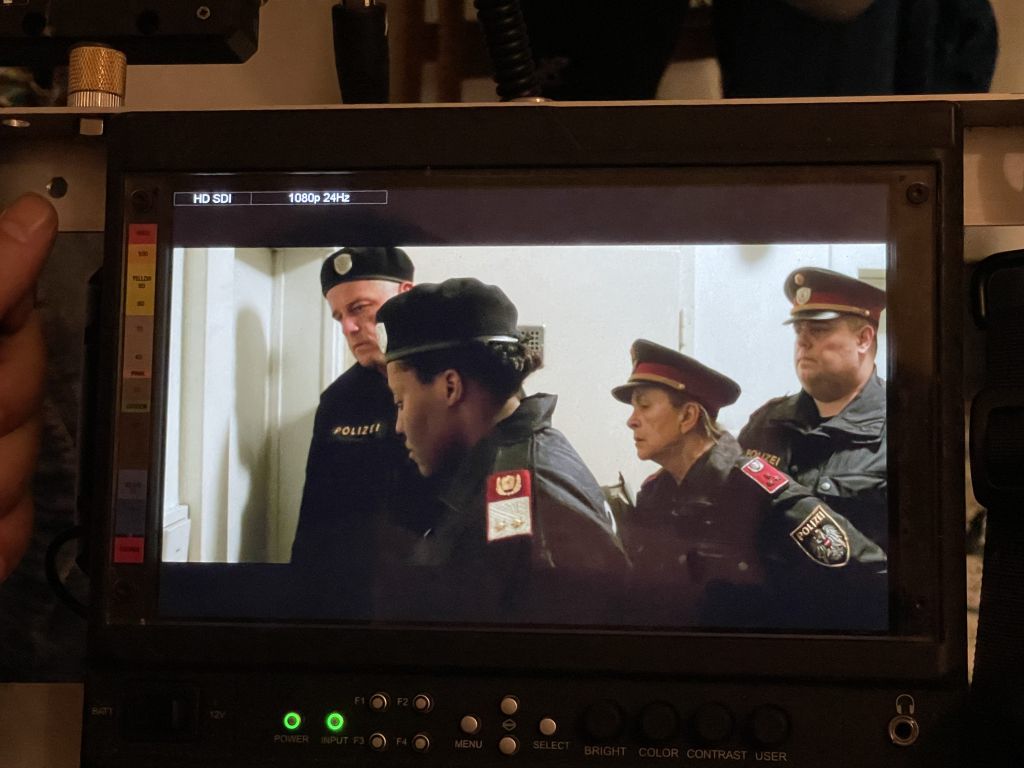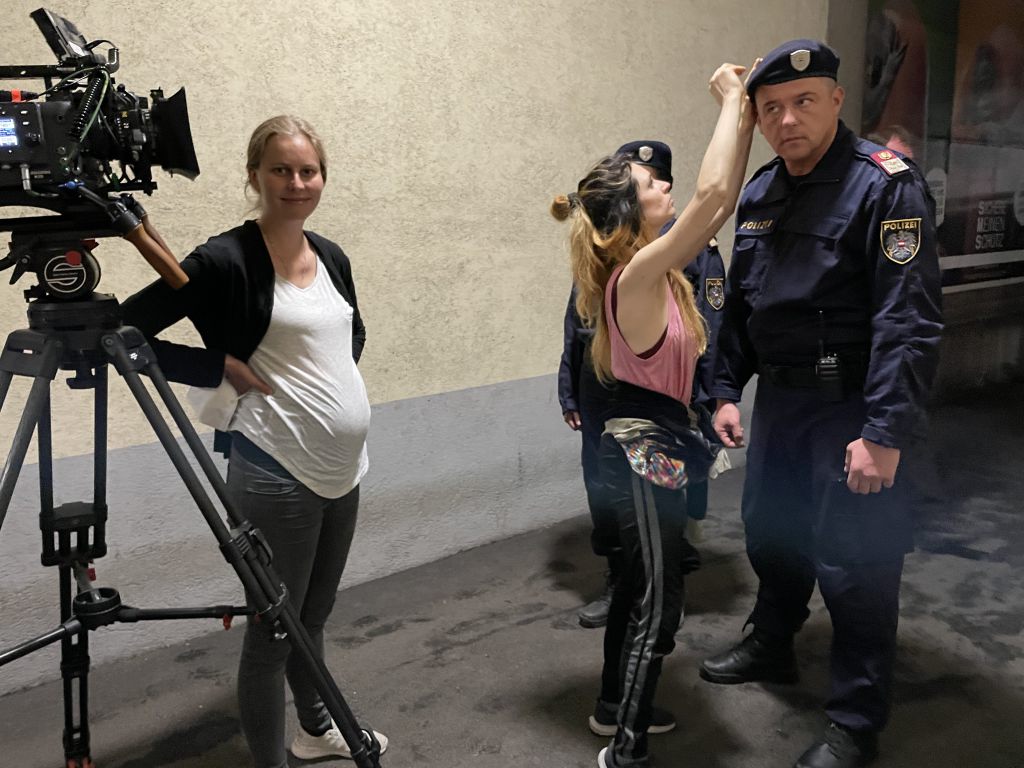On the Multiple Award-Winning Film Invisible Border
Vienna, late at night. The police pick up a Kosovar family for deportation. Police officer Nancy is torn between her responsibility and her compassion for the family, who’ve lived in Austria for a long time and are blindsided when the police show up. For this stirring short film, Film Academy Vienna alumnus Mark Gerstorfer and his Film Academy team won a Student Academy Award in gold in the Narrative category. These awards of the Academy of Motion Picture Arts and Sciences, which also confers the Oscars each year, serve to honour the work of young filmmakers.

“I wanted to make a film about home as a concept,” says Gerstorfer, who wrote the screenplay back in 2016. Back then, he researched deportation statistics—and was struck, there and in media reports, by the large number of deportations to Kosovo. For the film, he did an internship with the police where he accompanied them on patrols and deployments and asked them about their work. It was his observations from this experience, some of which pertained to police officers’ inner conflicts, that provided the underlying ideas for this film. “On the one hand, you’ve got families being deported—and on the other hand, you have police officers who find it unbearable to do so,” says Gerstorfer. The title Die unsichtbare Grenze (Invisible Border) alludes to questions about nationality and the idea of “home”. “A place can be home to you, but according to your passport it’s not—and you’re excluded accordingly,” the director sums up.

Filming was done with lay actors in 2021. To play the main role of the black policewoman Nancy, Gerstorfer’s choice fell on Temiloluwa Obiyemi: “The screenplay’s description of her character is a bit more hard-edged, while Temiloluwa’s presence and empathy lend something conciliatory to her portrayal.” In working with lay actors, directors can take advantage of real emotions that are there, personal styles, and language. However, it also requires lots of rehearsal. “Unlike when working with professional actors, you have to seek out and encourage lay actors’ dramatic drive. The directing team has to explain a lot; it’s almost like teaching,” says the director. “In a drama, it’s important to fine-tune the emotionality of the acting to a credible level,” comments director’s assistant and Film Academy student Maximilian Demets, “and to do so, you need trust and emotional proximity between the directing team and the actors plus lots of understanding on the part of everyone else.” This goes all the more for filming with children. Nathalie Sollak, who was eight years old at the time, played the daughter of the family. ”We were lucky to find Natalie—she’s empathetic and clever,” says Gerstorfer.
The film is set mainly in the Kosovar family’s apartment, which was installed complete with all furnishings in an empty building in Alterlaa. For the scenes in a stairwell and an inner courtyard, however, another location had to be found. The building where producer and Film Academy student Lukas Rosatti lived seemed appropriate. “We had three night shoots and were afraid the neighbours would call the police, which luckily didn’t happen. For a student film, our production was comparatively elaborate,” Rosatti recalls. Alongside the shoots at night and in several locations, there was also the need to get hold of a low-bed trailer and put a patrol car on it for the drive through the city. And for certain scenes, a stunt coordinator also had to be hired. For low-budget films like this one, it’s important to make sure the directing, production, and camera teams are thoroughly convinced since there’s little or no money available for the participants. “Our team accomplished an awful lot—above all those who kept everything running in the background,” remarks a thankful Rosatti.

dFor camerawoman Marie-Thérèse Zumtobel, the production was her Film Academy graduation film. She’d already worked with director Gerstorfer before: “He has a good feel for what he wants to have portrayed in an emotional sense. When we’re at our best, we function as if synchronised while we’re shooting, and I can turn the camera wherever it works well emotionally.” Zumtobel was already at an advanced stage of pregnancy during the physically strenuous filming work. But even so, her film colleagues describe her as “one of the fittest people” on the set.

Die unsichtbare Grenze has been shown and awarded at numerous international festivals. “Lots of people were very touched by our film and thankful that we’d made it. Its topic is a hot one—not just here, but worldwide,” is how director’s assistant Demets sums up its reception. The Student Academy Award in Gold represents the most important award that this film has received so far. Most of the team’s members travelled to the October 2023 award ceremony at the Samuel Goldwyn Theater in Los Angeles and accepted the award onstage as a group. At the ceremony, the tension rose—and when it was revealed that they’d received gold, “we were all just floored. For Austria, this was historic,” says Gerstorfer. The atmosphere, marked by forthright enthusiasm on the part of the American audience and constructive feedback from the industry, impressed him. One element of this award is the opportunity to be mentored by an Oscar winner. And for the team members’ careers, “this award will hopefully raise awareness and engender trust on the part of subsidising bodies and producers, because it’s is the highest honour that a film school production can receive in the US,” remarks Zumtobel. ”Awards like this one do support your career, but the main thing is a film’s message,” emphasises Demets. ”In any case, it’s a magnificent reward for our hard work,” adds an elated Rosatti. And Gerstorfer, for his part, declares that “the award has motivated me to do even more and to go out and convince others of my ideas.”
Die unsichtbare Grenze was shortlisted for nomination in the 2024 Oscars’ “Live Action Short Film” category.
Die unsichtbare Grenze can currently be streamed for free on JOYN.

